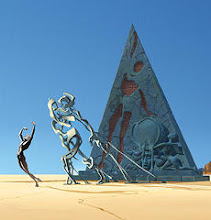Monotheism, Christianity and the Bible
Webster defines monotheism as “the doctrine or belief that there is but one God”. Christians profess to be monotheists. Christians embrace the Bible as the word of God. We can refer to Bible scripture for the following comments on God(s) and / or god(s):
Genesis 3:5
“For God doth know that in the day ye eat thereof, then your eyes shall be opened, and ye shall be as gods, knowing good and evil.”
Exodus 15:11
“Who is like unto thee, O LORD, among the gods? Who is like thee, glorious in holiness, fearful in praises, doing wonders?”
Exodus 23:24
“Thou shalt not bow down to their gods, nor serve them, nor do after their works: but thou shalt utterly overthrow them, and quite break down their images.”
Deuteronomy 5:7 (commandments)
“Thou shalt have none other gods before me.”
Deuteronomy 32:17
“They sacrificed unto devils, not to God; to gods whom they knew not, to new gods that came newly up, whom your fathers feared not.”
Judges 10:6
“And the children of Israel did evil again in the sight of the LORD, and served Baalim, and Ashtaroth, and the gods of Syria, and the gods of Zidon, and the gods of Moab, and the gods of the children of Ammon, and the gods of the Philistines, and forsook the LORD, and served not him.”
I could go on for pages and pages. The discussion(s) of other gods in the Bible is very extensive. There are approximately 22 named gods in the Old Testament and 5 in the New Testament (1). We can conclude from these passages that there are other gods and that YHWH does not dispute their existence, just requires that one place none other above him. If Webster is accurate in their use of “is” in the definition of “monotheism”, which could be replaced with “exist(s)”, then it would stand to reason that Christianity (among others) is not monotheistic. If you believe in the Bible, you then must believe in the existence of other gods. Should we choose to argue the point, we would need to consider the perception of “gods” and “God” and their use in the Bible. Some feel the term “gods” is used in a general sense for objects created by man in explanation for the things around him/ her. Others feel that there are other gods but it is the one God (YHWH) that created and dominates over all the others. Webster does not make this distinction in their definition nor does Dictionary.com. The Bible in and of itself does not offer a distinction or explanation (2) other than the specific references made to one (god) or the other (God / YHWH). John 1:1 tells us: “In [the] beginning the Word was, and the Word was with God, and the Word was a god”(3) . Here the term is used for a spiritual being created by YHWH, having a specific amount of power and authority. So, we can assume the term is used in this way throughout the Bible, confirming the existence of other gods. Someone has to be wrong here. Either Webster has their words mixed up or the religions believing in the Bible (Old or New Testaments) are really not monotheists.
As always, I welcome my readers (or should I say reader) to comment. I would love to see scripture either way.
Reference for this article and notes:
(1) Andrew Hill. Baker’s Handbook of Bible Lists. 1981
(2) Comment specific to English versions/ translations.
(3) New World Translation of the Holy Scriptures
This is the best reference I have purchased regarding the traditional Bible. It is like the Bible without all the words. It includes many family trees and histories/ events in date order.
Showing posts with label Christianity. Show all posts
Showing posts with label Christianity. Show all posts
Sunday, January 24, 2010
Tuesday, December 29, 2009
Another Good Beginning
The following book is another good beginning read. I say beginning because I would consider it a primer into the content to the Nag Hammadi Library. It is not bogged down with a lot of scholarly commentary (in fact it has none other than an introduction) or historical data. It is simple and clear and contains many of the popular Gnostic pieces. The translation is meant to be understood by the layperson. In my opinion, it has a very nice flow, giving the newcomer to Gnosticism a reasonable understanding of these scrolls / codex. It includes The Gospel of Thomas and The Gospel of Mary Magdalene.
Monday, December 28, 2009
Gnostic Beginnings
Okay folks this is the Gnostic book that I started with. I admit that at the time I read it (first time), some of the material was beyond me. Not beyond my comprehension but beyond that which I had been taught, etc. I was completely alien to some of the concepts discussed. Now I know that Stephan A Hoeller is one of the leading authorities on Gnosticism.
Sunday, December 27, 2009
Ion_Truth Mission Statement
The purpose of this blog is to look at that which we all seek: The Truth. Most people think of religion when "The Truth" comes up, but I would like to look at the combined topics of religion, science and mythology. By no means am I an authority on any of these subjects, but in my own searching I have come across many interesting books, videos and web articles which I hope to share. At times it may seem like I am leaning more towards religious topics, but that is because it is an interesting subject and I became hooked. Most of the religious material offered will fall under Gnosticism and other forms of Judeo-Christianity. Please don't think I am offering "The Truth". I am just putting some food for thought on your plate.
Labels:
Christianity,
Gnosticism,
Judaism,
mythology,
religion,
science
Subscribe to:
Posts (Atom)
